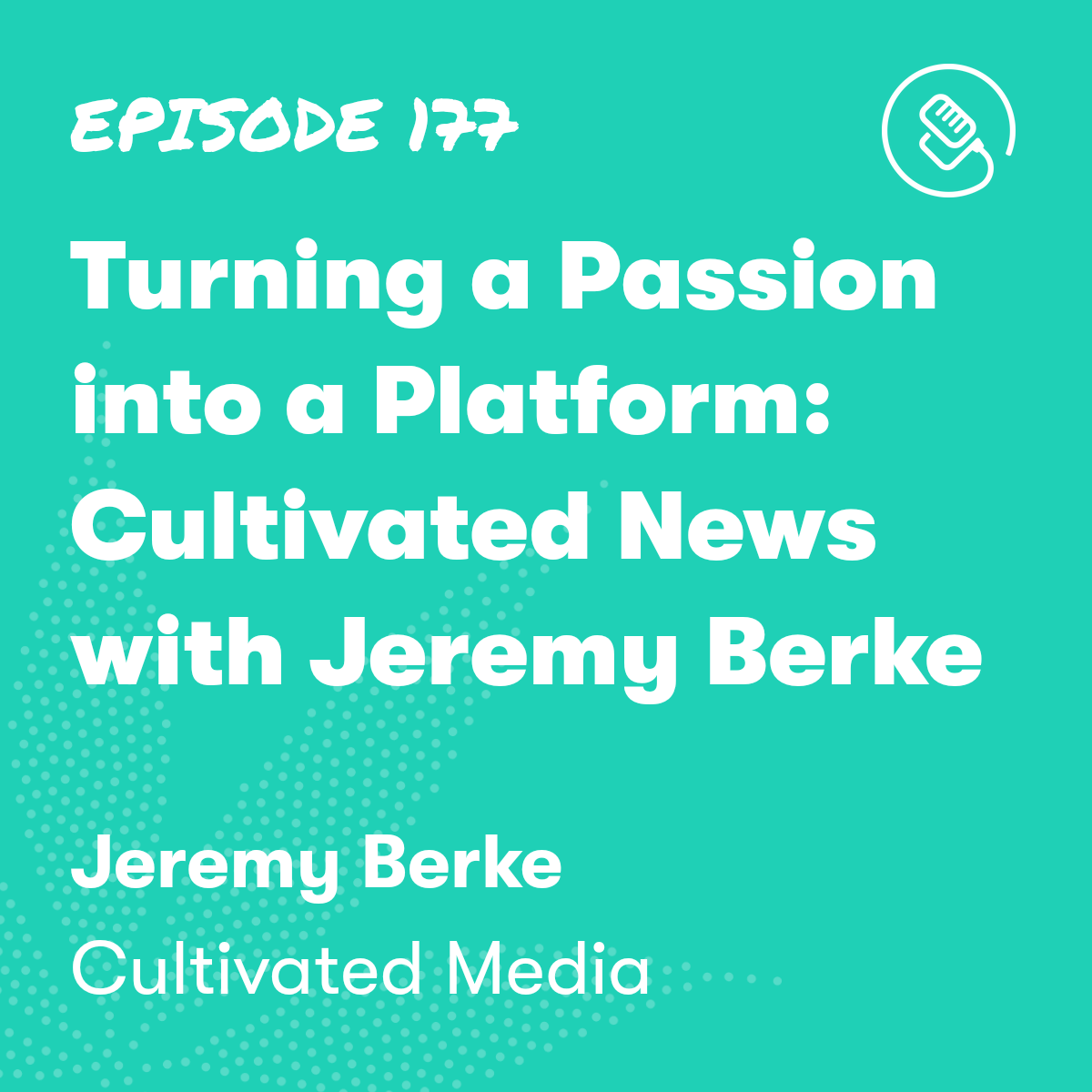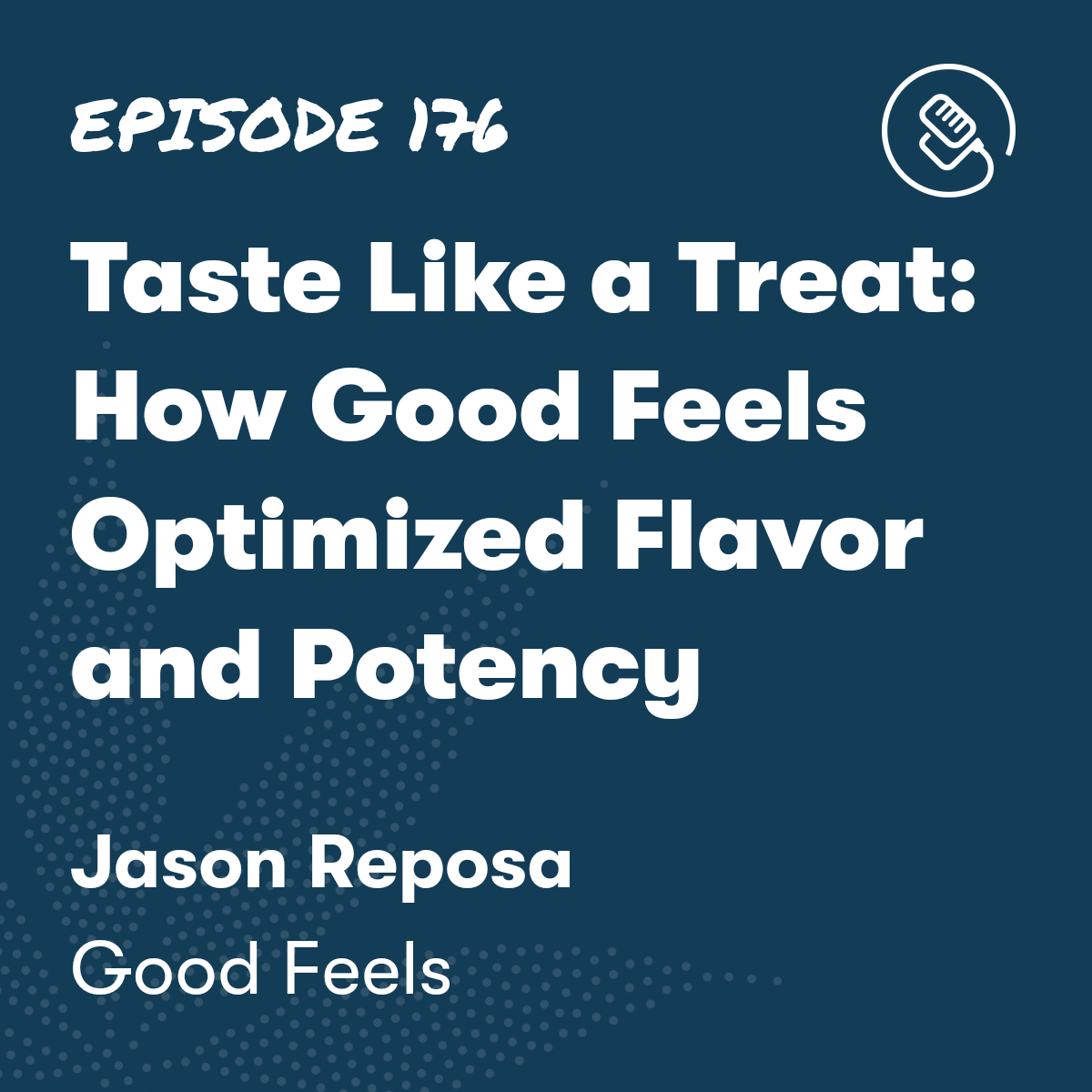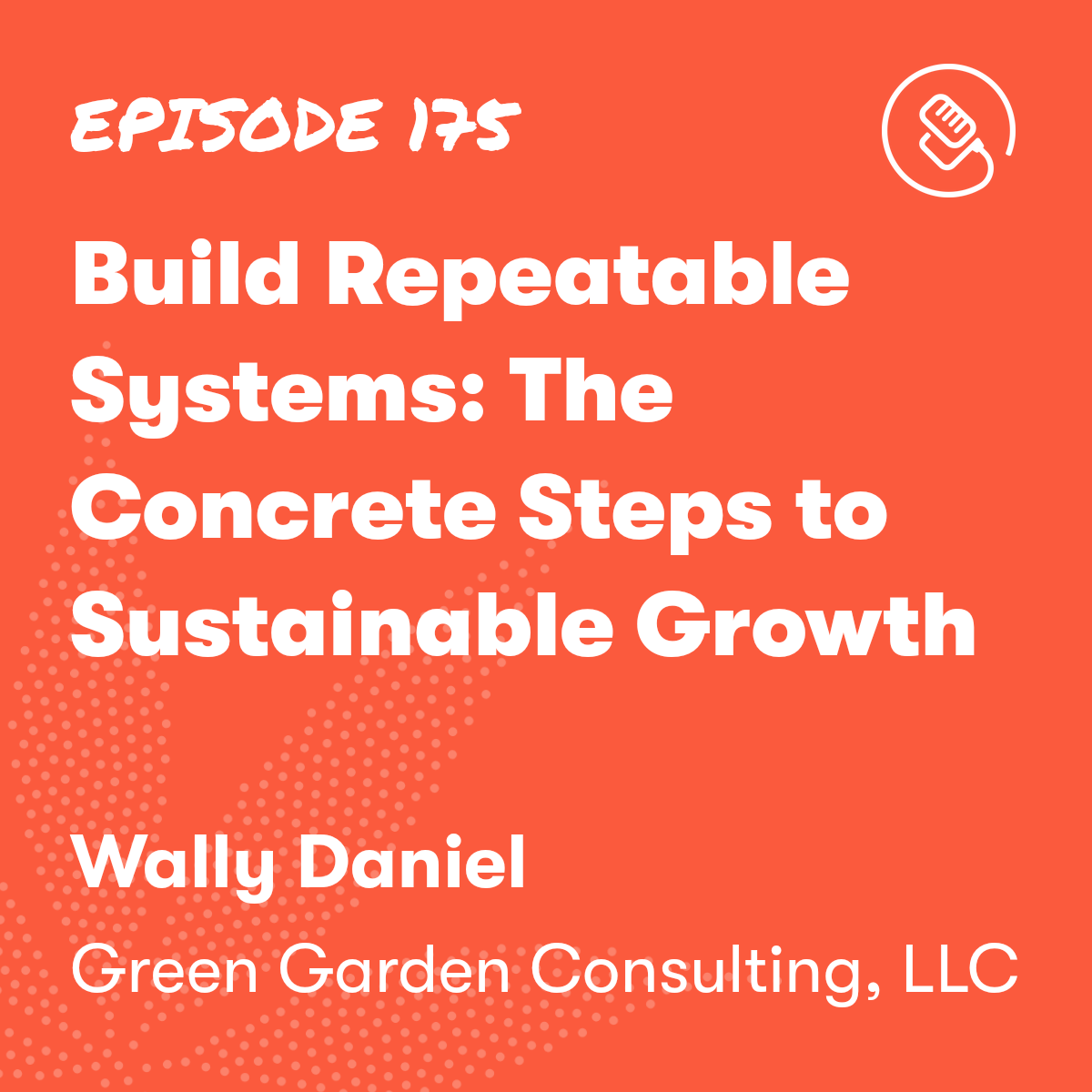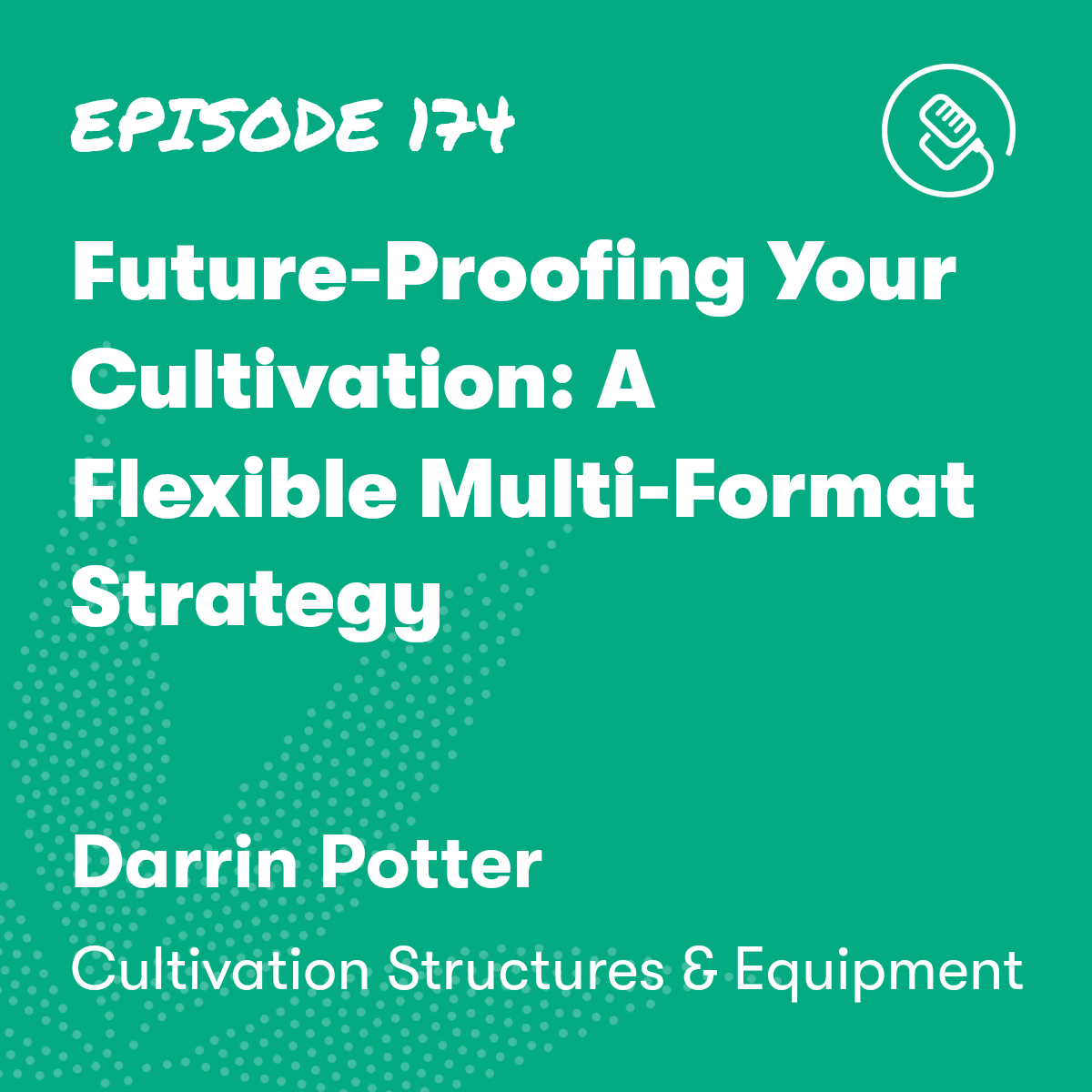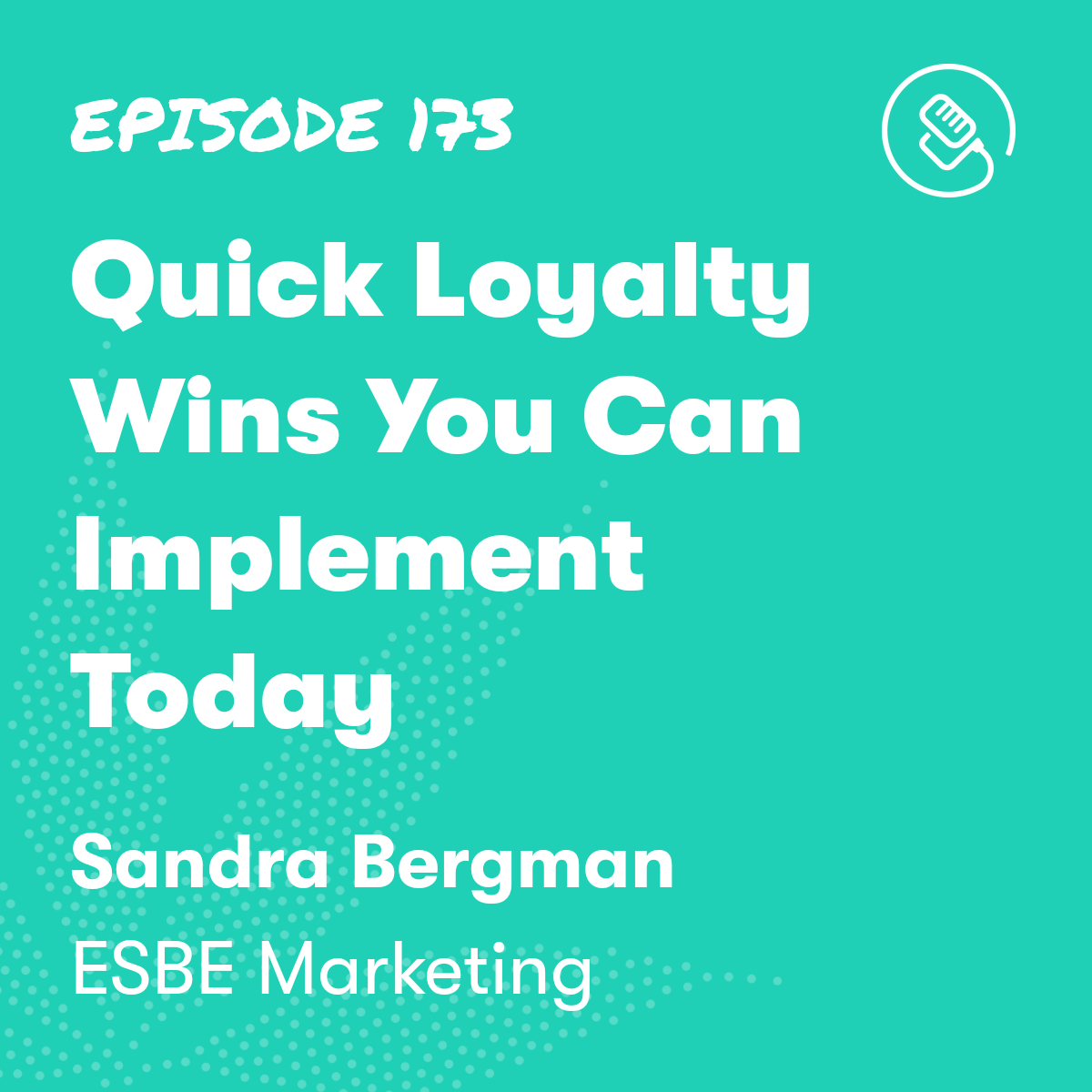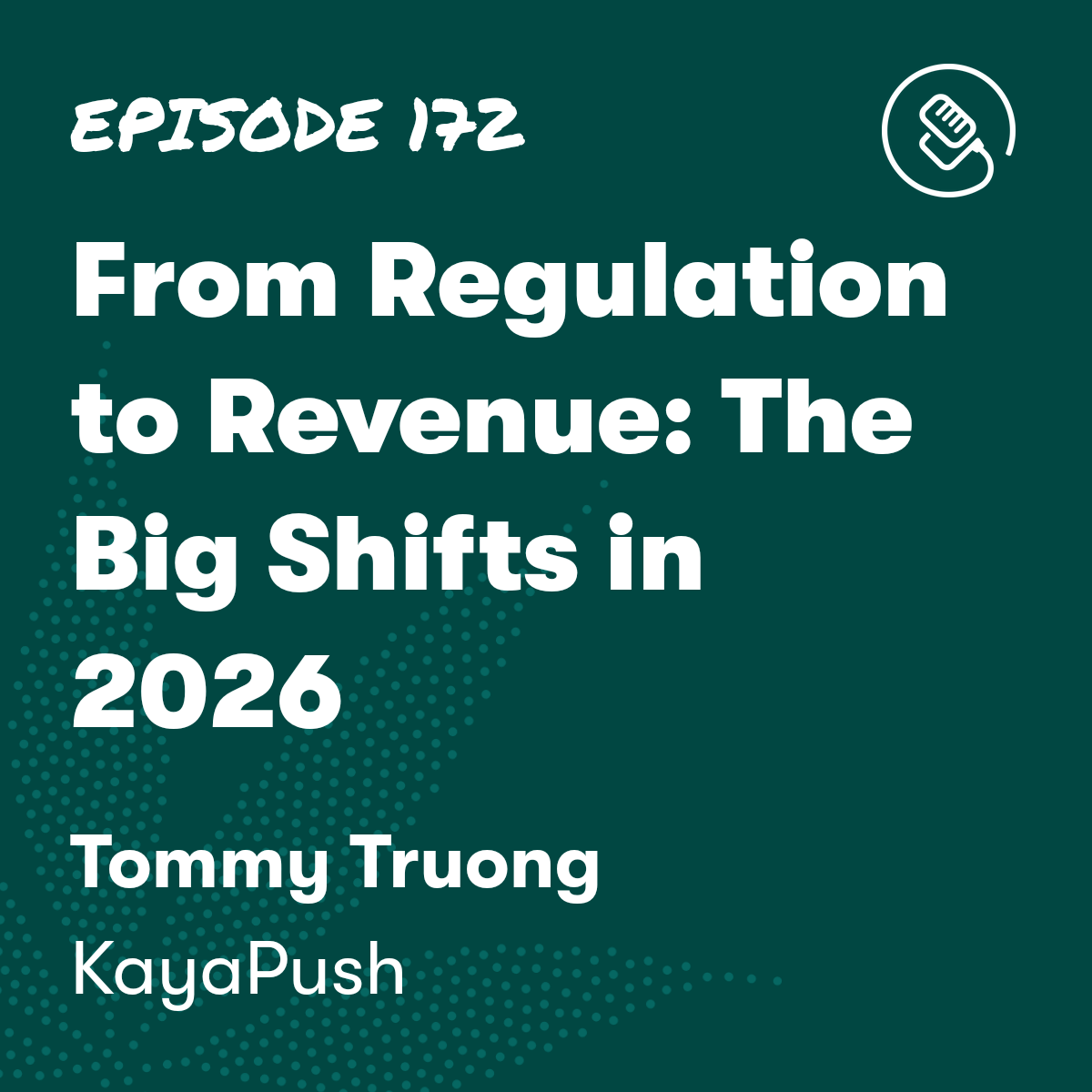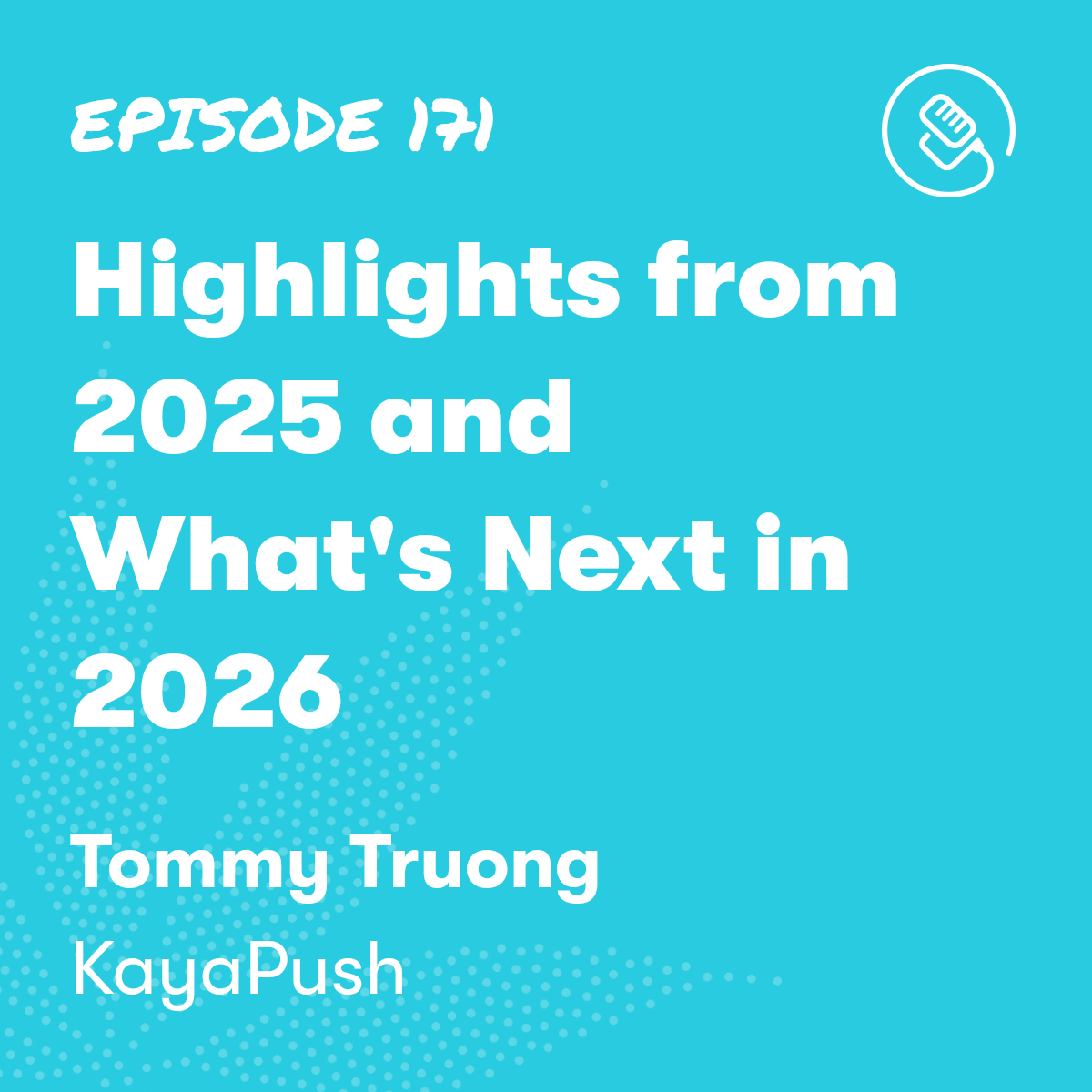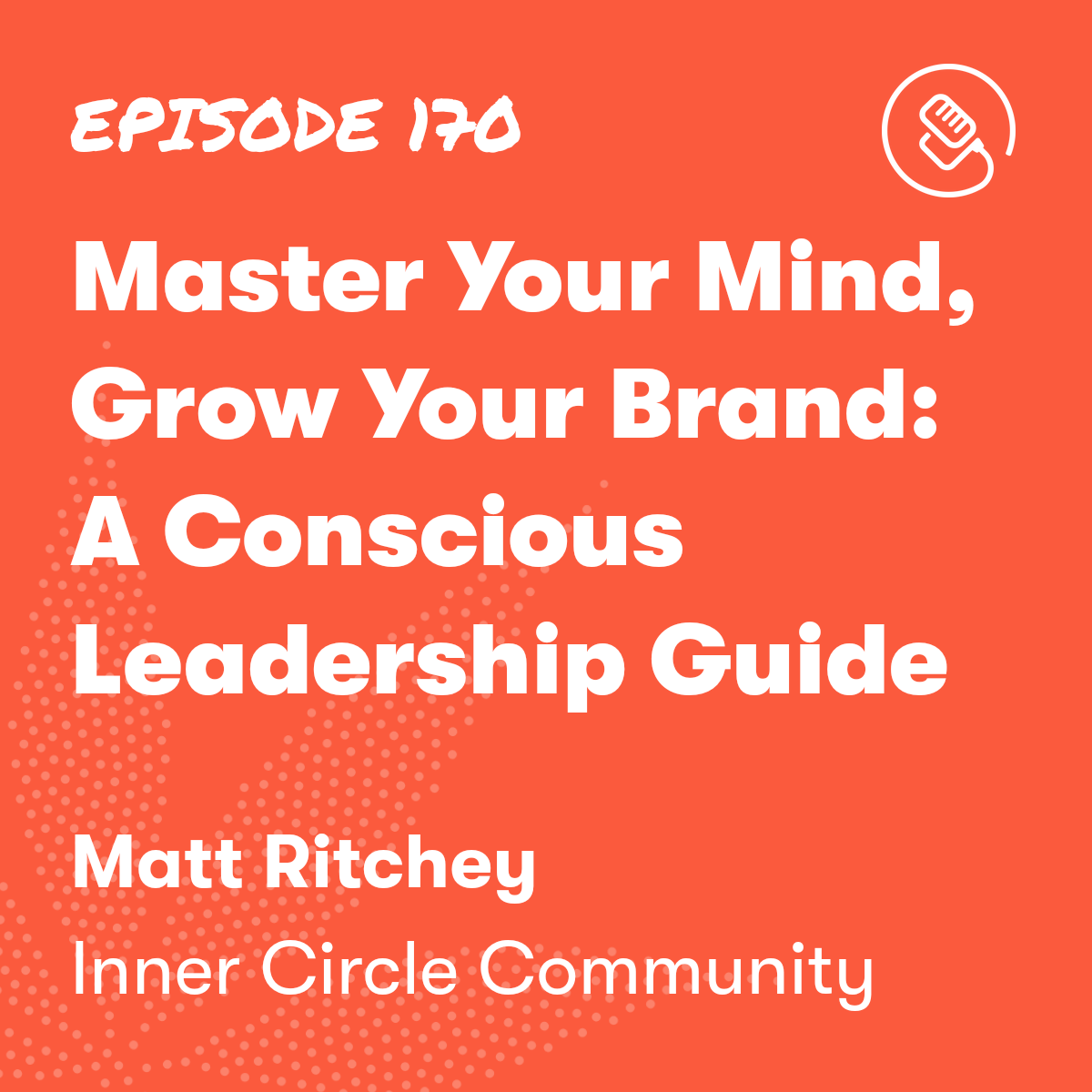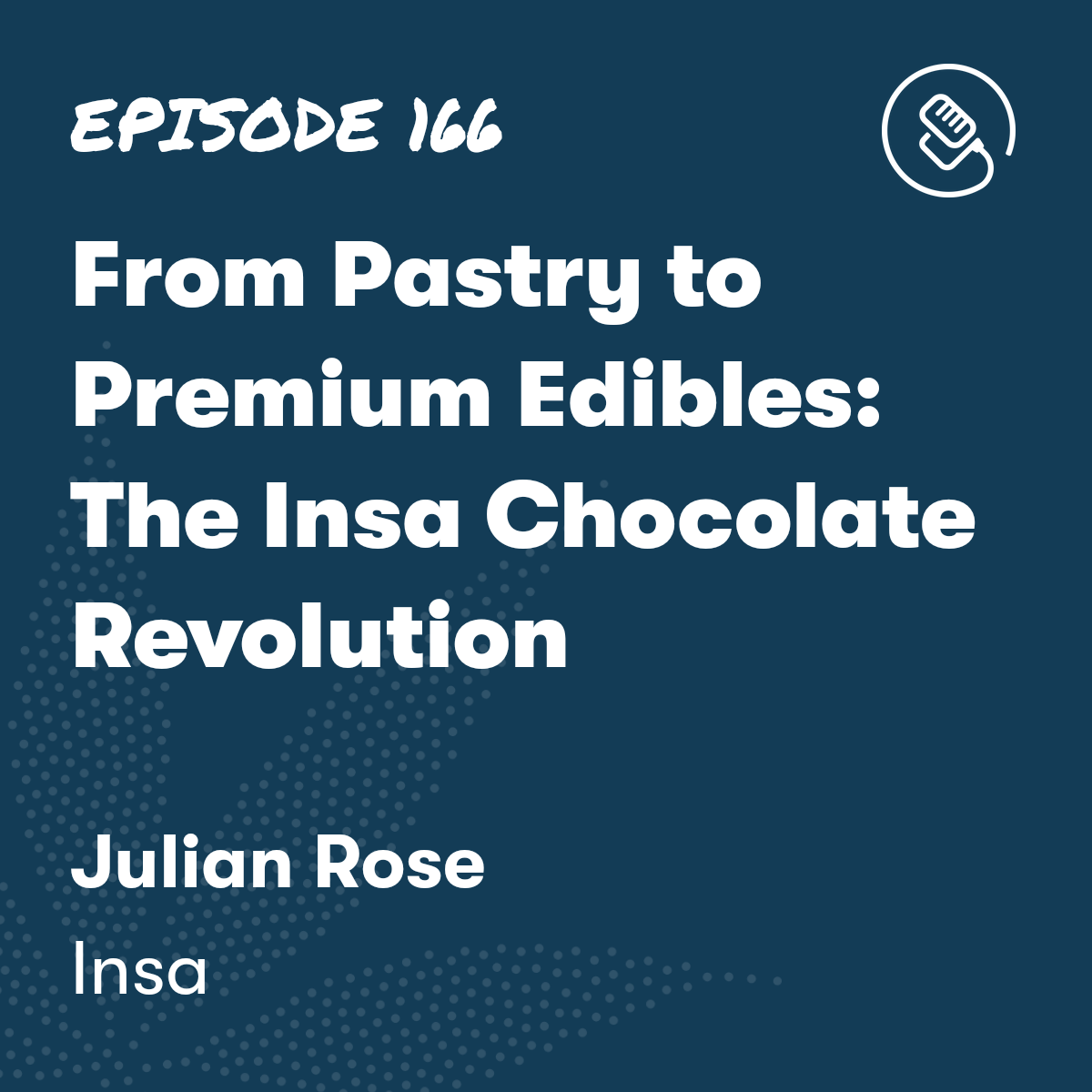

Uncovering the Secrets of Dispensary SEO and Marketing
Episode Description

Episode Transcript
Tom Mulhern: Do you remember the early days of cannabis culture? The, black light posters on the wall, and you'd go into those head shops and there's just green and purple. Those are the, those are the colors that really stand out. Green and purple and black lights. And it's, it's, it's overwhelming.
And, you know, I always felt a little uncomfortable walking into a place like that because that's not really my day-to-day aesthetic. And if you are someone who wants to celebrate cannabis culture and really learn more about cannabis, it, it was so hard to find something that felt unique, but also something that fit kind of your design style.
Well, today I am talking with Charlie McElroy, who's the founder of Gold Leaf. Gold Leaf is a company that is combining art, design and science and education all together into one package. They create educational resources, including posters that are, have infographics of different information about the cannabis plants, and they create these journals that you can go through and document your journey of trying different strains and different types of cannabis.
They also create these informational cards that blend this ability to, to really dive into the science behind the plant while aesthetically pleasing. And so today I'm talking to Charlie and we dive into everything from SEO to design, to music, to Spaghetti Chili, which is unique to Cincinnati.
And I had a fantastic time talking to Charlie and I really hope you enjoy this interview with Charlie McElroy from Gold Leaf.
Tom Mulhern: Charles McElroy is the founder of Gold Leaf, an educational printing company focusing on botanical science. They create functional and unique printed items for the cannabis and coffee communities. Gold Leaf's mission is to make the science behind the plant more approachable and beautifully accessible through design.
A former volunteer with the Marijuana Policy Project, a history of supporting veterans education and access to medical marijuana, and several years studying permaculture and organic farming in Ohio and Colorado.
McElroy created Gold Leaf to benefit the evolving recreational and medical cannabis communities. Gold Leaf's products are available worldwide, and the company also provides custom design services. Now adorning Select dispensaries and white-label products across the US and Canada.
Charles, welcome to the podcast. Welcome to the show.
Yeah, my pleasure, Tom. Thanks for having me on So tell me a bit about your background, Charlie, and how did you end up in the cannabis industry?
Charles McElroy: I don't know if I like, thought that I would be landing in the cannabis industry, but I kind of, cut my teeth when I got to college at Ohio University, and it was, it was more from a justice angle. I kind of learned about it from that side.
I came about it from kind of studying like different different ways that people have been oppressed in, in our country and through history. And it always kind of, I mean this is no, no surprise to anybody, but the way that, that the cannabis plant has been painted through our you know, America's checkered past is, is pretty unique and crazy.
I mean, you're getting into big business interests, racism, all kinds of stuff, and So that I always found that interesting and so that, that kind of led me to, you know, exposing myself a bit more to the culture.
it wasn't till later in my life, like, I guess toward the end of, of college and, and post-college that I, I found it helpful for my, lifetime autoimmune problem.
So then I went on some adventures in life and started a business with a friend and once once we kind of exited from that the groundwork was laid and I, I wanted to do something in the cannabis industry that was I felt like missing at the time. I really liked that I was able to come up with a way that kind of scratches that creative itch for me while also pairing it with something that I think I'm good at. Which is like the, the, the analytical logical thinking. And so that's kind of where I came up with the concept for these like guided journals to help medical patients kind of understand the world of, of legal cannabis.
You know, and with that, I also kind of did a little bit of, of that design with, with like home grow ops.
And I was definitely inspired by aviation, the pilot log books, or if you're doing studio recording you know, you'll have like the track list and it's basically like these, these really intuitive guided entry pages for whatever you're doing. And I wanted to do something like that for cannabis.
So, you know, we kind of came out with the first concepts for Gold Leaf around that time. And yeah, that, that kind of led me to it. I, at the time, nobody was helping patients very well and showing cannabis in a, a kind of mature and accessible way.
Not stoner culture aesthetics, something that's a little more discreet and buttoned up, and that, that's way more common today, of course. But back then there, there was pretty much nobody who was doing it. Everybody was leaning on that, like hippie sort of old, old hippie tropes for, for cannabis branding and messaging and, you know, enter Gold Leaf.
And we, we took this like painstakingly minimalist approach to it all. And, I think that was one of the big differentiators early on. One, it, it looks nice and two, it was kind of more approachable to people because they weren't turned off by that very polarizing topic of cannabis.
Love it or hate it.
Tom Mulhern: So now you, you kind of pair design and science together. And, and how do you do that? Like, you, you've got the journals and I've got these amazing beautifully designed cards that you sent me with, you know, the cannabinoids and different, like, I was sitting here reading all this stuff. I was like, oh, we even got like a, a journey here that you can go on.
So, so how do you do this? Like, I mean, there's so much science behind the plant, it can be so polarizing, but it can be so beneficial to people with autoimmune disorders and, and so many different things. So, so where do you get your science and your design and mix 'em all together?
Charles McElroy: I'm very versed in cannabis science, but I'm, I am not an expert. I'm not a PhD. One thing I've learned in, in the many pursuits is that you have to, you have to find the expert and team up with them. So that's my approach with Gold Leaf.
I can get the concepts together, the layout the design, the UX and everything, but in terms of like the, raw science and the information GoldLeaf has a, a researcher on our staff. He's fantastic at our iterations because the science changes and we need to keep up with it.
we are going only for primary source materials here, so we're not going to like Wikipedia or or Google for most of the time, unless it's like some cultural piece or something. He'll kind of wade through those research papers make sure they're published and verified and that's kind of our source of truth for stuff.
Charles McElroy: And now obviously there is a lot of gaps in cannabis research. So in those situations, we will find out whoever the expert is and we'll talk to them. This seems like the perfect resource for budtender education. Do you guys have dispensaries partnering with you to use your products or how would a budtender get your products, these, these journals or these cards or the posters?
We do a lot of like business to business work at this point. And, and like I mentioned, I really like that because Gold Leaf needs a little bit of, of like a background. You're not gonna see it and know what it is because our journals are so discreet, the posters don't punch you in the face with the topic.
Like they, they require a little bit of explanation. And so I really like working with other businesses who are more ready to talk about that with their clientele. We'll let our clients you know, totally white label the journal, putting their brands in place of ours. Even updating the typefaces within the journal, the layout even we've done colored versions. We've done versions that have different layouts based on the dispensary's offerings.
Then the other side is the infographics. Our clients for those are, are business owners.
So they're either hanging them up in their practice, in their office, in their dispensary. And they use 'em as visual aids for, for like patient visits. Cuz they, they work great for that. And we white label those as well so we can slap on other logos tweak the, the coloring and, and the color so that they work well in series.
Stuff like that. I like doing that stuff because, you know, everything I mentioned before with you know, basically getting, getting advocates for, for the design work that we do. And then giving them a tool that's useful to their patients or customers. A as well as like internally like with budtender training, hiring somebody and it's just like, okay, you need to learn a bunch of this stuff.
They could just kind of work through our journal for a week and probably have a pretty good grasp over, you know, terpenes, cannabinoids, boiling points, all that kind of stuff. So I feel like it's very helpful for that as well.
So, you know, we're, we're super motivated for that side of stuff. It's kind of where we get our kicks. Like we love using our design chops to, to improve and iterate on, on the stuff we've done. go down into new rabbit holes within that, you know, like, it's, it's all great.
Tom Mulhern: Are there some new rabbit holes that you're, you guys are kind of exploring for the coming years? Like new products that you're like, oh, we, we need one about, you know, dabbing, like a dabbing thing, or whatever it is.
Charles McElroy: Well, there, there's one that it's been on my back burner for, a year now. And it's pretty ambitious and I can't, we gotta do it right, that's why it's taking so long. But it's a like a choose your own adventure infographic. And we've got one for coffee too, which is a little less polarizing.
But the cannabis ones are the core of the idea. So basically if, if you are familiar with like mind maps like that type of infographic where in, you're looking at the infographic and it starts with a question. . And depending on your question, you follow the dotted line and it gives you another question depending on how you answer that, you follow the dotted line and et cetera.
So it turns into this hot mess, spiderweb of questions and answers, and then at the end of it, it gives you a recommendation. At Gold Leaf, we intentionally do not make hard recommendations on things, right?
Cuz it's just inaccurate to do so with cannabis. So the recommendations that would be coming outta like this choose your own adventure cannabis infographic would, you know, the first one is gonna be more recreational based. It's not gonna be like, you need to do this and this, here's your dosing size.
It's gonna give you a starting point. That is a great template for any budtender to kind of follow, and you know, not, it's not like I've been working on this nonstop for a year plus, it's, I get frustrated or I, I have to think through this. So I'll put on the back burner and do other stuff and then come back to it. Have to like re-remember the design decisions that I had already made.
And it's, it's a whole thing.
Tom Mulhern: Now you have a, a, a lot of experience in marketing and SEO, and SEO is a huge issue for cannabis retailers. Whether even they're, if they're plant touching, they're not plant touching all of us.
The moment you put cannabis into it, your ads get taken down. You're getting shadow banned, whatever it is. So, so for SEO specifically, what are some tips that you would have for cannabis retailers taking that SEO knowledge and using it to grow their business?
Charles McElroy: This has been like, one of the elements of, of Gold Leaf's success is that we, we invested in SEO early on and really gained ground quickly. It's a lot more competitive of a space now. But you know, you want to get your domain authority score up so that you have that perceived authority when it comes to organic rankings and everything.
Google's really changed their algorithm since Covid. They're incentivizing a few things that are totally low hanging fruit that is, has nothing to do with cannabis that everybody could knock out and then just be, be primed for success.
And those are making sure that your website is super fast. That's gonna be more important on mobile. You should be designing your mobile pages first and then desktop as an afterthought. Cause that's just how the internet is now. If you feel like desktop is still like what your users.
Prefer great, but just know that Google and Bing are are looking at your mobile first.
So make make sure it's snappy. You wanna make sure that it's ADA compliant as much as you can. There's some free tools to test, but this is one of the things that was bundled in the, the recent rollout is a focus on that accessibility.
And there's a big overlap with SEO, but the difference here is that if you have these red flags of like, non contrasting colors and typography that's too small, non-responsive images and, and whatnot, then you're, you're just gonna fail with your SEO because you're gonna be dinged on things and you're never gonna even have a chance to focus on keywords or stuff like that.
So make sure your ADA's up to scuff. Make sure your, your mobile and desktop are super fast.
I think there's a lot of of new strategies that are emerging. And one unique thing of dispensaries is that they're almost always very localized. And so you don't need to compete with everybody.
You only need to win organic searches from the people in your immediate area. Looking at it through that lens, I feel like it is a lot more of a easier battle to win for most websites and business owners.
I wouldn't whitewash your site. I wouldn't pull out all of those keywords because that, that, that's gonna have the opposite effect. While you may be able to get some more ads working those people at least some of them are gonna be surprised when they actually discover what you're doing. And that is gonna result in a high bounce rate a low engagement rate and that's actually gonna hurt your SEO more than the traffic was.
I guess my point is that you don't wanna whitewash your your content to pull out the word cannabis. Or, or it's relating terms because you're gonna have bad user experiences and you're gonna want to rank for those, especially locally.
So you want people coming to your site and you want them doing things on your site, like clicking. So anything you can think of to put on your site that is like valuable. So I'm, I'm just thinking like this whole choose your own adventure thing.
I'm talking about maybe, maybe working with a developer to make a little widget that helps with product selection. And then you have users coming to your site, even if they're not your users, they're web users who are giving you tons of clicks and tons of interactions and that's gonna lift you up super fast.
Charles McElroy: the other secret sauce is straight up back links. They're still kind of like the currency of. Off page SEO. So even if it is not one that's gonna give you a lot of traffic, if it's from like an authoritative domain that's gonna be worth its weight in gold, kind of, because it's gonna help you win those organic auctions down the road. So somebody types in cannabis dispensary near me, maybe four come up, and yours is gonna be at the top if your DA score is the highest, and you get that to be the highest by all the things I mention.
Tom Mulhern: I think everything you were just sharing there so important because as more and more of these giant Amazon style marketplaces come online and start pulling in business for local dispensaries.
Medical operations like to stand out, they have to build that organic reach cuz advertising, you can't do advertising. You can't be like, Hey Cincinnati, come on out to our medical dispensary. Like it'll get taken down in a second. So, yeah, I think that's super valuable.
Are there, are there any other creative marketing tips or ideas that you've seen that have, that have kind of worked out there?
Charles McElroy: For a lot of cannabis brands, social, Is like total dead weight. It's not really delivering customers or traffic. And the trend these days with social media is that people don't want to see stuff from companies or brands.
They want to see it from individuals. One strategy that you could use if you're a dispensary owner, cannabis business, and you want that organic reach through social media, create a moniker or a persona that can be the torch bearer of your brand, and that is your social media presence because people are sick of getting sold stuff on social media. GoldLeaf got a lot of momentum early on because of the way that we teed people up, teed journalists up for stories. So, it's a great strategy and, and we still do it now. You know, obviously I, I, I couldn't recommend highly enough like connecting with like a PR person.
I feel like this, that is where you should spend your marketing dollars is, is hire somebody on the PR side and they'll basically go out and be your advocate for placements. comparison, like we've, we've tried all these marketing things and we don't touch the plants, so you might be like, huh, I wonder if they could d if they could slide some Facebook ads through the, through the net or any of that. And the answer is we can't really sustainably because if we can get a beating heart to look at it and be like, Hmm, okay, yeah, that doesn't violate the terms.
Okay, we'll green light it and they do, then the algorithm's just gonna shut it down two days later. So, We can't win. And anyway, even when we did like sneak some of those ads through, they just, they don't do well because the the targeting for cannabis doesn't exist with like, with like meta or or Google.
Tom Mulhern: You can't target at dispensary owners or bud tenders, like you can't dial it in that, that same.
last I spoke with Google about doing some roundabout ads. They, they won't let you target certain keywords in the cannabis space. So it's like you, they have the data, but they're sort of blacklisted.
Charles McElroy: And I know that they were exploring undoing that in, in the Canada market because it's legal countrywide. I, I haven't heard an update there, but I mean, this stuff moves surprisingly slow for these like, forward thinking tech companies who, who could totally do like geotargeting stuff.
Like, you live in California, you wanna market to California, why can't you use this, these terms? Like, it makes no sense. Yeah. So , anyway, I think, I think PR is a, is a great alternative you know, with the end result being publicity, the same publicity that you'd be trying to do yourself with paid ads that nobody pays attention to, you know what I mean?
What do you see as kind of the future of cannabis culture and education? Like you said, you guys wanted to create something that was a little bit more upscale, aesthetically pleasing, you know, bring design elements into it.
Tom Mulhern: We see like Seth Rogen with houseplant and creating this amazing aesthetic that would fit well in Cincinnati as the art deco style. But what kind of, do you see like a good future, more companies like that, that are wanting that kind of feel?
Charles McElroy: I think that is kind of the baseline these days. Gold Leaf seems to thrive in states that just pass their legalization and have this like, renaissance of new businesses.
I think that's very logical cuz they're doing Google searches and we're showing up for some odd terms and stuff. And we also provide them with services that are normally pretty expensive. Like outfitting the inside of a dispensary or getting custom educational pieces about cannabis that kind of thing.
So, pretty much everybody I've talked to in maybe like the last last year has had pretty good branding out of the gates. Not, not necessarily like house plant level, but , I would say like a hundred times better than where it was in 2016, 2017, just out of the gates. And they're doing it right, like education is, is like a big part of what, what we need to do.
Everybody seems to know that now. So in terms of the future, I kind of anticipate a slow, slow movement into this, like homogenization of things. I know that there's a lot of big cannabis companies that are now getting more and more states under their belt, so it's, it's no longer hyper state specific stuff.
But you know, I think just because of the local nature, the local requirement of cannabis, can't take it over state lines, all of that, it's still always going to sort of protect those local businesses that are not big mama dramas, you know?
Charles McElroy: Beyond that, nothing really is gonna happen quickly until it's descheduled federally. Even, even all this tech stuff I've been complaining about with like ad algorithms and whatnot, that's, that's their rationale. They're, they're a national, international company, but they, they look at it through a national lens and it's like, we can't do federally illegal stuff.
We can't support that. So I think just, just deschedule it legalize it even, but it descheduling it. I, I think, would start the floodgates to create that more homogenization, which I, I don't necessarily think is a good thing. But there are some good things about it. One of them would be probably more visibility into the, the products you're getting. And I think honestly it will it'll, encourage like, quicker advancement in, in not only like the understanding of things like the science behind, but also the advancement of the commerce side of it. You know? If they start allowing folks to take it over state lines, then it's just gonna be crazy because then you're gonna have a few states that just dominate the country, like every other cash crop, you know what I mean?
So imagine a world where you can import this off the wall. Crazy cultivar that is perfect for somebody who has these very different requirements in terms of the chemical cocktail that you could, you could bring that in from Oregon or wherever.
Charles McElroy: And then, you know, you're able to offer your clientele a whole wide world of products and the best of everything. Instead of, this is just what we could do in our state.
I think that's really where a lot of your products come in. You know, It is this journey of like exploring and figuring out what suits your body best, what suits your appetites, what, what kind of journey are you looking to go on? And so, I think it's so cool what you guys are doing.
Tom Mulhern: It's, it's, it's a sustainable business model that can continue to scale and grow as, as legislation changes and everything.
So how can people find out more about you? And, you know, even if a dispensary owner is like, Hey, I wanna get some of this literature and education stuff in my dispensary, or even just someone wants to get a poster for Christmas. You can go to our website, shop goldleaf.com. We also have a lot of cool stuff on Instagram at Gold Leaf Ltd.
Charles McElroy: The stuff on there is mostly like education, like bite sizes of education. So it's a, it's kind of cool. Those are the, those are the main things. And you know, in terms of any, any dispensary owner is interested in learning more about what we do or, or customizations just hop over to our website and reach out.
Our agency does tons of stuff. We also do like web support too, so if you're interested in, in like any of the SEO stuff, we, we do that as well.
Tom Mulhern: That's awesome. Well, Charlie, thanks. For being on the podcast. It's been fantastic talking with you. And you know, I think we could have geeked out for another hour, but uh, I think our time is up.
Charles McElroy: Cool. Yeah, I, I'm so happy you had me on, Tom. Thank you.
Tom Mulhern: I love talking to people like Charlie who have such a wide breadth of knowledge from SEO to design, to music, to audio engineering, to business, building a business. And you know, I think that one of the most valuable pieces was him talking about how your dispensary can really use SEO and design to stand out as a brand within the industry.
Gold Leaf is providing dispensaries, the ability to kind of stand out in the industry by offering educational resources and, you know, these beautiful posters. And even that, that journey poster that, that Charlie was talking about to really be a unique brand. And that's what's gonna make you stand out is if you have a strong web presence through organic search to your website, and if you have a brand that's unique that people remember and that have that when they walk in, they have this experience, this in-store experience that they won't forget.
And I love the idea of combining science and design, and I just, I just think it's so neat what they're doing over at GoldLeaf. So make sure you head over to their website, head over to their Instagram page to find out more about what they're doing, and really support Charlie and GoldLeaf and, you know, share what they're doing with the people in your community. Again, I want to thank you for listening to the podcast. We are so grateful for all of our listeners.
I hope that you are gaining lots of really good content from these podcasts. We are gonna continue to have top-notch guests, just like Charlie and and the others that have been on the show. And we can't wait to continue to share stories of cannabis retailers who are trying to do something unique and different in this industry that can benefit people across the world.
So stay tuned. Make sure you go hit and subscribe to our podcast and make sure you give us a review. And we are so thankful for everyone who's listening to the Kaya Cast podcast.
